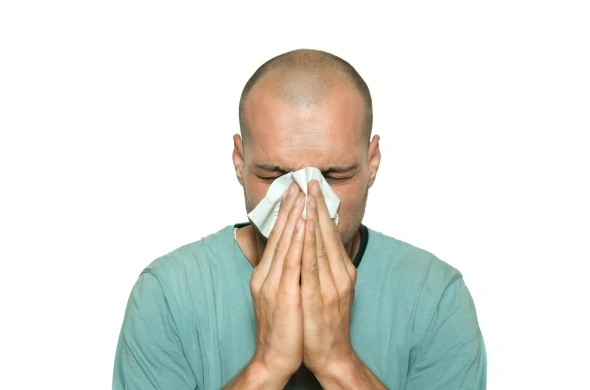Winter has a way of sneaking up on us, and so do the seasonal sniffles and aches. No matter how careful we are, sometimes a cold or the flu finds a way in. When it does, the only thing on your mind is how to recover quickly from cold and flu.
The good news? While there’s no magic cure, you can absolutely support your body’s natural healing processes and shorten your downtime. It’s not just about waiting it out; it’s about being strategic with your rest and recovery. Here’s your practical guide to bouncing back faster.
1. Listen to Your Body: The Ultimate Guide
The single most important thing you can do is tune in. Your body is working hard to fight off an invader, and it needs energy to do that.
- Prioritize Rest: This isn’t the time for heroics. Cancel your plans, call in sick if you need to, and give yourself permission to truly rest. Sleep is your most powerful recovery tool.
- Hydrate Relentlessly: Fluids are essential. They thin mucus, prevent dehydration from fever, and help your system flush out the virus. Water, herbal teas (peppermint, ginger), broth-based soups, and electrolyte drinks are all excellent choices.
2. Fuel for Recovery, Not Just Comfort
What you eat can either fuel your immune system or slow it down.
- Focus on Nutrient-Dense Foods: Think easy-to-digest and packed with vitamins. Chicken soup isn’t just an old wives’ tale, it provides fluids, electrolytes, and protein. Other great options include oatmeal, smoothies, and steamed vegetables.
- Boost with Immune-Supporting Nutrients:
- Zinc: Found in legumes, nuts, and seeds, zinc can help shorten the duration of a cold.
- Vitamin C: While it may not prevent a cold, it can support immune function. Get it from citrus fruits, bell peppers, and broccoli.
- Avoid Inflammatory Foods: Steer clear of sugary snacks, processed foods, and excessive dairy, which can increase inflammation and thicken mucus.
3. Smartly Manage Symptoms
Treating symptoms won’t cure the virus, but it will make you feel significantly more comfortable, which aids rest.
- For Congestion: A steamy shower, a humidifier, or a simple bowl of hot water with a towel over your head can work wonders to loosen mucus.
- For a Sore Throat: Gargle with warm salt water, sip on soothing tea with honey, or use lozenges.
- For Aches and Fever: Over-the-counter medications like ibuprofen or acetaminophen can provide relief. Always follow the recommended dosage.
4. The Delicate Balance of Moving Your Body
This is where many people get stuck. The question of Exercising While Sick is a common one. The best advice comes from the “neck rule.”
- Symptoms ABOVE the neck? (e.g., runny nose, congestion, sneezing) Light movement like a gentle walk or stretching may be okay and can even help with sinus pressure.
- Symptoms BELOW the neck? (e.g., chest congestion, hacking cough, body aches, fever) This is your body’s clear signal to rest completely. Exercising While Sick with these symptoms can hinder your recovery and even be dangerous.
The goal is to recover quickly from cold and flu, and sometimes the most productive thing you can do is absolutely nothing.
5. Know When to Call the Doctor
While most colds and flus can be managed at home, it’s crucial to seek professional medical advice if:
- Your symptoms persist for more than 10 days.
- You have a high fever (over 102°F or 39°C) that doesn’t respond to medication.
- You experience difficulty breathing, severe sinus pain, or a headache that won’t quit.
- You have an underlying health condition like asthma, diabetes, or heart disease.
The Bottom Line: Be Kind to Yourself
The fastest way to recover quickly from cold and flu is to grant yourself the grace to slow down. Your body is incredibly resilient, but it needs your cooperation. By prioritizing deep rest, smart hydration, nourishing food, and mindful symptom management, you provide it with the best possible environment to fight back and get you back to your healthy, vibrant self.
Disclaimer: This article is for informational purposes only and is not a substitute for professional medical advice. Always consult with your healthcare provider for any health concerns or before making significant changes to your wellness routine.
